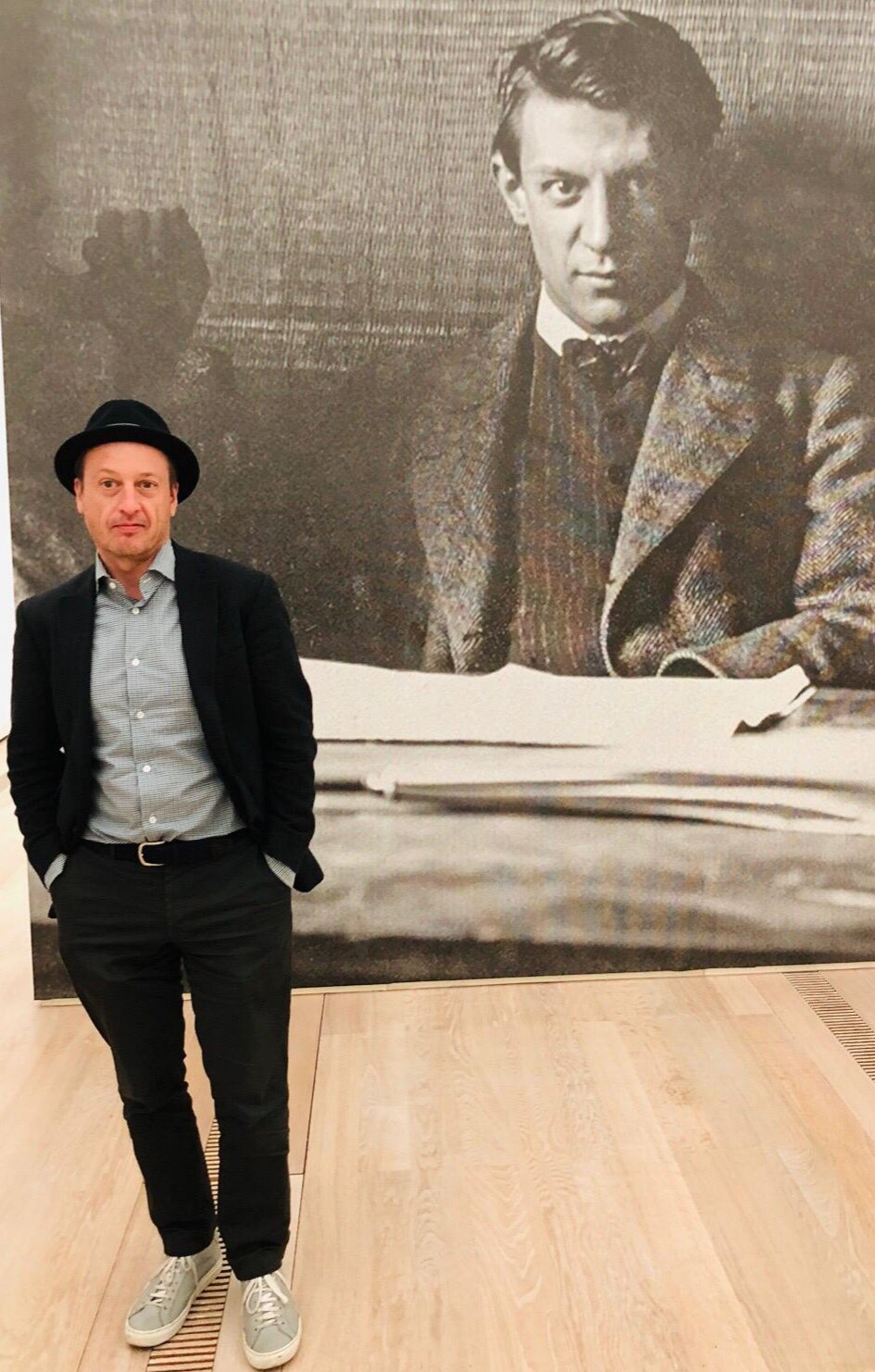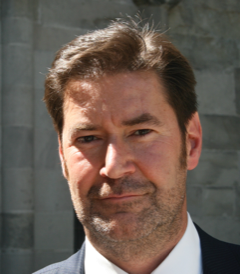EUXL Workshop #1
4th and 5th of march 2021
Goals
Determine the skills and experiences which UX Leaders do need to succeed in their organizations.
Analyse and understand how to tackle participants real world cases
Learn how to develop and implement a UX Strategy and UX KPIs properly with regard to participants real world cases.
Learn how to develop an UX Organisation and integrate UX practices and processes into an existing organisation and culture
Build the foundations of our network and start to help each other grow.
Speakers & Facilitators
Marcel Altherr Partner Palladio Trusted Advisors
Bernhard von Allmen Chief Usability Engineer Roche Diagnostics (Rotkreuz CH)
Daniel Boos UX Lead SBB (Bern CH)
Markus Flückiger Principal UX Consultant Zühlke Engineering AG (Schlieren CH)
Henning Brau Lead Corporate UX Strategist BSH Home Appliances (Munich, Germany)
Hannes Unger UX Senior Designer and Architect, KnowGravity Inc. (Zurich CH)
Christian Hauri UX Coach & Strategist Hauri Ergonomie & Coaching GmbH (Zurich CH)
Results of the workshop
Our first workshop was successfully held at the beginning of march 2021. Here is a documentation of the results:
The European UX Leadership Network was founded in March 2020 by Christian Hauri (Hauri Ergonomie & Coaching), Hannes Unger (KnowGravity),Hendrik von Spreckelsen and Eddie Rich in Lenzerheide, Switzerland. It pursues the ambitious goal of significantly increasing the overall influence of user experience thinking in business by building an Europe-wide network of UX leaders.
On March 4 and 5, 2021, 22 UX leaders from different companies (D + CH) participated in the first UX Leadership Workshop of the European UX Leadership Network. The facilitators Christian Hauri (Hauri Ergonomie & Coaching) and Hannes Unger (KnowGravity) guided the participants through the two intensive and inspiring days. A total of 5 speakers held lightning talks on absolute key topics of UX Leadership, each of which formed the prelude to topic-related workshops.
In accordance with the principles of the EUXL Network "no bullshit, real-life content" in the first part of the event the UX Leaders exchanged the status of their own companies with regard to the development of UX. It quickly became clear that despite the heterogeneity of the companies represented in terms of size and industries, many of them face similar challenges. For example, the resources of UX specialists are often not sufficient to meet the demand in the company. In addition to the operational work in digital product development, there is too little time and energy to systematically develop the maturity of the UX organisation. The institutionalisation efforts with regard to processes, standards and culture development are also often slow and friction-ridden. The very lively exchange revealed the common horizon of experience, showed that there is a need for discussion and action, and motivated a joint search for solution strategies.
Insights from the talks
Markus Flückiger showed that a UX leader needs different skills than a UX designer. For example, he must be able to understand business models and master C-level communication. The ability to develop strategies and tactics to move his company, to think and act user-centric must be accompanied by the ability to form and inspire interdisciplinary teams.
In Henning Brau's talk, it became clear that UX must become a value-adding part within the business strategy. This first answers the question of WHY. The selection and application of an appropriate UX maturity model shows where we are and what we have to do to reach the next maturity level. Then we need a UX strategy that defines how we will implement UX and manage the next step. UX products KPIs and customer journey KPIs help us measure success.
Participants of the workshop#1
Marcel Altherr demonstrated modern and agile leadership strategies and fueled the discussion why UX does not occur at C-level in many companies. In dynamic teams measures were then discussed and evaluated on how the UX mindset can be effectively and sustainably anchored at C-level.
Daniel Boos used the example of SBB to show how communities can be built up and maintained in the UX thematic environment, and what a promoting effect they can have on the UX culture of an organization. The work in the dynamic teams then focused primarily on the practice learnings from the example case and their applicability to the cases of the participants.
Bernhard von Allmen's talk "S-Curve - what do we need to scale UX?" illustrated the way to develop UX teams: First find the value that UX can create for the business, then set clear priorities within that. Based on this, we determine the core capabilities of our UX teams, define the way of working and KPIs, and lastly the tools and models we need to develop UX.
Feedback from the participants
In the retrospective of the workshop, the feedback from the participants ranged between high satisfaction and enthusiasm - especially the lively exchange and the exciting and high-quality talks received a very high appreciation. As a learning experience, we take with us that the work on individual cases needs more attention. We will take this into account when planning future workshops.
The two intensive, informative and inspiring days whetted the appetite for the next workshop, for which a collection of topics has already been jointly created. This follow-up workshop will probably take place in September 2021 - hopefully then together on site.
Online Zoom-Conference, 22nd of June 2021 6:00 - 8:30 PM
„UX Leadership Practice: UX Traps in companies - how to recognise and handle them.“
- Talk by Stephanie Föhrenbach
As UX leader you are confronted with ideas that sound promising, but on closer inspection might have a snag to it. Wouldn’t it be great to have a dedicated UX research team and isn’t it desirable to base decisions on user tests? I will illustrate some unwanted effects of promising ideas that I observed in different companies. We then move on to a workshop where you can share your experience, discuss, analyse, maybe even discover more traps, and how we can avoid them.
Stephanie is a principal UX consultant & trainer at Zühlke, Switzerland. She works for clients from various industries and consults and supports them in user-centric development of software and products. She lectures and provides training on UX and requirements engineering at the university of applied science in Bern, at companies and international conferences.
Extract from the talk of Stephanie Föhrenbach











